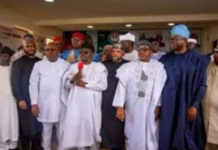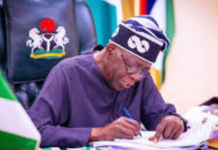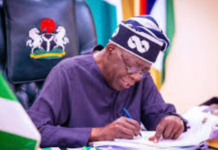Nigeria is a nation defined by its diversity, with over 250 ethnic groups and a mix of religious communities primarily comprising Islam, Christianity, and indigenous beliefs. This diversity is both a strength and a challenge. While it enriches Nigeria’s cultural landscape, ethnic and religious identities often play a central role in shaping the country’s political landscape. From election outcomes to policymaking, these identities have influenced Nigerian political dynamics since independence. This article delves into the ways ethnic and religious identity impact Nigerian politics, examining both the challenges and opportunities they present.
Historical Background: Ethnic and Religious Identities in Nigerian Politics
Ethnic and religious identities became prominent in Nigerian politics long before independence in 1960. During British colonial rule, policies such as indirect rule emphasized ethnic and regional differences, inadvertently creating a legacy of division. After independence, Nigeria adopted a federal structure, partly to address ethnic and regional diversity by distributing power across multiple states. However, as ethnic and religious groups began forming political parties, these identities continued to influence Nigeria’s political landscape.
The early years of independence were marred by political crises driven by ethnic and religious rivalries. The First Republic (1963-1966) saw three dominant regions—the Northern, Western, and Eastern regions—each dominated by different ethnic groups: the Hausa-Fulani in the North, the Yoruba in the West, and the Igbo in the East. Political parties often aligned with these ethnic identities, fostering rivalry and distrust. The resulting instability contributed to a series of military coups, culminating in a devastating civil war from 1967 to 1970. Even in modern-day Nigeria, ethnic and religious identities remain deeply embedded in political affiliations, voting patterns, and government appointments.
The Role of Ethnicity in Nigerian Politics
1.Political Party Formation and Alignment: Ethnicity often influences the formation and alignment of political parties. Political groups tend to cater to specific ethnic constituencies, emphasizing issues that resonate within their regions. For instance, the All Progressives Congress (APC) and the People’s Democratic Party (PDP), two of Nigeria’s largest political parties, both have strongholds in specific regions aligned with ethnic groups. This ethnic alignment can lead to a focus on regional issues rather than national concerns.
2.Election Outcomes: During elections, voters often prioritize ethnic representation. This phenomenon, often referred to as “ethnic voting,” can affect election outcomes significantly, with candidates relying on their ethnic base to gain votes. Politicians, aware of this tendency, often focus on building support within their ethnic groups and make promises that appeal to specific regional interests, reinforcing ethnic divisions.
3.Federal Character Principle: To address ethnic imbalances, Nigeria’s government established the Federal Character Principle, which aims to ensure fair representation across regions in federal appointments and government positions. While the principle aims to promote inclusivity, critics argue that it sometimes leads to inefficiency and the appointment of individuals based on ethnicity rather than merit. Additionally, it can deepen ethnic divisions by focusing on quotas over qualifications, limiting inter-ethnic cooperation.
The Impact of Religion on Nigerian Politics
1.Religious Voting Patterns: Nigeria’s political landscape is often divided along religious lines, with the northern part of the country predominantly Muslim and the southern part primarily Christian. Religious identity can influence voting patterns, with voters gravitating toward candidates who share their religious beliefs. This has occasionally led to tension between political parties and candidates, as religious alignment can overshadow policy issues and national unity.
2.Religious Influence on Policymaking: Religion often affects policies on social issues, including education, women’s rights, and health. In the predominantly Muslim North, for instance, religious laws based on Islamic principles can influence regional governance. In contrast, the Christian-majority South often advocates for secular governance and policy frameworks that reflect its beliefs. Balancing these perspectives is challenging for a nation that aims to accommodate both secular and religious viewpoints.
3.Interfaith Relations and Political Stability: Religious identity can both foster unity and create division. Politicians often appeal to religious leaders to influence their followers, which can either promote peace or exacerbate conflict. Religious leaders wield significant influence and often play a role in endorsing candidates or swaying political opinions, especially in rural areas where religious affiliation is deeply rooted. However, this influence can lead to polarization if used to advance political agendas.
Challenges Arising from Ethnic and Religious Identities in Nigerian Politics
1.Ethnic and Religious Tensions: The focus on ethnic and religious identities in politics can create tensions, particularly in areas where communities with different affiliations live closely. Periodic outbreaks of violence between communities have been driven by perceptions of marginalization or unequal treatment, resulting in social fragmentation and insecurity.
2.Patronage and Corruption: Ethnic and religious identities often lead to patronage networks in government. Politicians may allocate resources and appointments based on loyalty rather than merit, favoring individuals from their ethnic or religious group. This practice contributes to corruption, as loyalty to ethnic or religious groups may be prioritized over accountability to the entire population.
3.Inhibition of National Identity: When ethnic and religious identities dominate political discourse, it becomes challenging to build a cohesive national identity. The perception that leaders prioritize regional interests over national goals can undermine public trust and diminish the sense of unity, creating obstacles to policies that require national cooperation.
Opportunities for Building Cohesion in Nigerian Politics
While ethnic and religious identities present challenges, they also offer opportunities for fostering unity and national development:
1.Inclusive Governance: A governance model that respects and includes diverse voices can strengthen Nigeria’s democracy. Politicians who emphasize inclusivity over division and work to build inter-ethnic alliances are more likely to promote policies that address the needs of all Nigerians. Programs that encourage interfaith and interethnic dialogues can also help to foster mutual understanding and reduce tensions.
2.Promoting National Identity Through Education: Strengthening civic education that emphasizes shared values, history, and goals can help foster a sense of national identity among Nigerians. By promoting the idea that Nigeria’s strength lies in its diversity, educational programs can reduce ethnic and religious divisions over time and encourage younger generations to think beyond their affiliations.
3.Reforming the Federal Character Principle: Modifying the Federal Character Principle to reward merit and performance rather than solely focusing on ethnic quotas could create a balance between inclusivity and efficiency. Ensuring that qualified individuals from all backgrounds have equal opportunities in government can help build public confidence in a fair and competent political system.
4.Empowering Civil Society: Civil society organizations (CSOs) that work across ethnic and religious lines can play a crucial role in promoting accountability and transparency in Nigerian politics. CSOs focused on voter education, human rights, and conflict resolution can bridge divides by addressing issues that impact all Nigerians, regardless of ethnic or religious background.
Conclusion
The influence of ethnic and religious identity on Nigerian political dynamics is undeniable. While these identities present significant challenges to Nigeria’s political unity, they are also integral to the country’s history and culture. By embracing policies that promote inclusivity, accountability, and merit, Nigeria can harness the positive aspects of its diversity. Building a political system that respects and values Nigeria’s ethnic and religious communities can help transform these identities from sources of division into strengths that drive national development and unity.



















